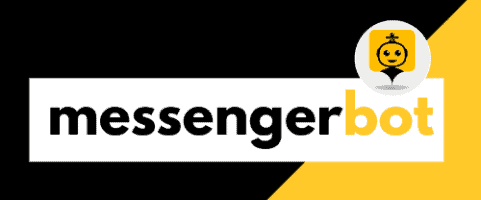In today’s fast-paced real estate market, leveraging technology is no longer optional; it’s essential for success. A chatbot for real estate agents can be a game-changer, transforming how you engage with clients and streamline your operations. This article will explore the myriad benefits of incorporating a chatbot into your real estate business, from enhancing customer engagement to automating lead generation. We will delve into practical strategies for implementing chatbots on your website, best practices for interactions, and how advanced AI tools like ChatGPT can elevate your property listings and inquiries. Additionally, we will compare the top AI tools available for real estate agents and clarify the distinctions between chatbots and human agents. Join us as we uncover how a chatbot can revolutionize your real estate practice and position you for success in an increasingly competitive landscape.
How can a chatbot for real estate agents transform your business?
The benefits of using a chatbot in real estate
Chatbots in real estate serve as virtual assistants that streamline communication between agents and clients. They can handle inquiries, schedule viewings, and provide property information, significantly enhancing customer engagement and operational efficiency.
Key Benefits of Using Chatbots in Real Estate
- 24/7 Availability: Chatbots provide round-the-clock assistance, ensuring potential buyers receive immediate responses to their inquiries, regardless of time.
- Lead Qualification: By engaging with users, chatbots can qualify leads based on their responses, helping agents focus on high-potential clients.
- Data Collection: Chatbots can gather valuable data on user preferences and behaviors, which can be analyzed to improve marketing strategies.
Top Examples of Real Estate Chatbots in 2024
- Zillow Chatbot: Assists users in finding properties based on their preferences and can schedule viewings directly.
- Rex: A chatbot that provides personalized property recommendations and market insights.
- OJO Labs: Engages users in conversation to understand their needs and connects them with agents.
Enhancing customer engagement with chatbots
Utilizing chatbots in real estate not only enhances customer service but also optimizes operational workflows. By adopting the latest technologies and best practices, real estate professionals can leverage chatbots to stay competitive in a rapidly evolving market.
Best Practices for Implementing Chatbots in Real Estate
- Define Objectives: Clearly outline what you want the chatbot to achieve, such as lead generation or customer support.
- Integrate with CRM: Ensure the chatbot is connected to your Customer Relationship Management (CRM) system to track interactions and follow up effectively.
- Regular Updates: Keep the chatbot’s knowledge base updated with the latest property listings and market trends to provide accurate information.
Future Trends in Real Estate Chatbots
- AI and Machine Learning: The integration of advanced AI will enable chatbots to provide more personalized experiences by learning from user interactions.
- Voice-Activated Assistants: As voice search becomes more prevalent, chatbots will evolve to include voice capabilities, allowing users to interact hands-free.

How to Use Chatbot in Real Estate?
Implementing a chatbot for real estate agents can significantly streamline operations and enhance client interactions. By integrating a chatbot into your real estate website, you can provide immediate assistance to potential buyers and sellers, ensuring that no inquiry goes unanswered. Here’s how to effectively utilize chatbots in your real estate business.
Implementing Chatbots on Your Real Estate Website
To get started with a chatbot, the first step is to integrate it into your real estate website. This process is straightforward and can be accomplished with just a snippet of code. Once implemented, the chatbot can handle various tasks, such as answering frequently asked questions, scheduling property viewings, and providing instant responses to inquiries. This not only improves customer satisfaction but also frees up your time to focus on more complex client needs.
Additionally, using a Messenger Bot allows for automated responses across multiple platforms, including social media channels like Facebook and Instagram. This multi-channel approach ensures that your clients receive consistent and timely information, enhancing their overall experience. For more insights on enhancing customer support with chatbots, check out our article on elevating customer support.
Best Practices for Chatbot Interactions in Real Estate
To maximize the effectiveness of your chatbot, consider the following best practices:
- Generate Compelling Listing Descriptions: Use ChatGPT to craft engaging property descriptions that highlight key features and amenities. Providing detailed information can significantly increase buyer interest, as noted by the National Association of Realtors (NAR, 2023).
- Market Analysis and Trends: Leverage ChatGPT to analyze current market trends, helping you make informed pricing strategies and identify investment opportunities. Data-driven insights are crucial in today’s competitive real estate landscape, as emphasized by Zillow (Zillow, 2023).
- Client Communication: Draft personalized emails and follow-up messages with ChatGPT to enhance client relationships. Personalized communication can boost engagement rates by up to 50% (HubSpot, 2023).
- Social Media Content Creation: Generate relevant content for social media platforms to drive traffic to your listings. Engaging content can significantly increase brand visibility, as 70% of consumers prefer brands that provide relevant information (Sprout Social, 2023).
By following these best practices, you can ensure that your chatbot not only serves as a tool for automation but also enhances the overall client experience in your real estate business. For more information on how to set up your first AI chatbot, visit our setup guide.
Can you use ChatGPT for real estate?
Utilizing ChatGPT in the real estate sector can significantly enhance how agents manage property listings and respond to inquiries. This AI-driven tool offers a range of functionalities that streamline communication and improve client interactions, making it an invaluable asset for real estate professionals.
Leveraging ChatGPT for property listings and inquiries
ChatGPT can assist real estate agents by generating engaging property descriptions that capture the essence of listings. This not only saves time but also ensures that the descriptions are optimized for search engines, increasing visibility. By integrating ChatGPT into your workflow, you can automate responses to common inquiries, providing potential buyers with instant information about properties. This capability enhances customer satisfaction and allows agents to focus on more complex tasks.
For example, when a prospective buyer asks about a property, ChatGPT can provide detailed information about features, pricing, and nearby amenities, all while maintaining a conversational tone. This level of engagement can lead to higher conversion rates as clients feel more informed and valued. Additionally, tools like Brain Pod AI offer similar functionalities, allowing agents to create high-quality content effortlessly.
Integrating ChatGPT with existing real estate tools
Integrating ChatGPT with your existing real estate tools can create a seamless experience for both agents and clients. By connecting ChatGPT to your CRM systems, you can ensure that all client interactions are logged and followed up appropriately. This integration allows for personalized communication based on previous interactions, enhancing the overall customer experience.
Moreover, using ChatGPT alongside platforms like Messenger Bot can further streamline your operations. Messenger Bot’s capabilities in automating responses and managing inquiries can complement ChatGPT’s strengths, creating a robust system for handling client interactions. This combination not only improves efficiency but also helps in generating leads through effective engagement strategies.
For more insights on how to implement these technologies, consider exploring our tutorials that guide you through the setup process.
What is the best AI tool for real estate?
In the rapidly evolving landscape of real estate, selecting the right AI tool can significantly enhance your business operations. The best AI tools for real estate agents not only streamline processes but also improve customer engagement and lead generation. Here, we will compare some of the top AI tools available, focusing on their unique features and benefits.
Comparing top AI tools for real estate agents
When evaluating AI tools for real estate, it’s essential to consider various factors such as functionality, ease of integration, and overall effectiveness. Some of the leading AI tools in the market include:
- Brain Pod AI: Known for its advanced natural language processing capabilities, Brain Pod AI offers a comprehensive suite of tools that can assist with property listings, customer inquiries, and market analysis. Its user-friendly interface makes it accessible for agents looking to enhance their digital communication.
- Messenger Bot: This platform excels in automating customer interactions through AI-driven chatbots. By integrating Messenger Bot into your real estate website, you can provide instant responses to inquiries, improving customer satisfaction and engagement.
- Zillow’s Zestimate: A popular tool for property valuation, Zestimate uses AI to provide accurate home value estimates based on various market factors. This tool is invaluable for agents looking to price properties competitively.
Each of these tools offers unique advantages, and the best choice will depend on your specific needs and objectives. For instance, if your primary goal is to enhance customer engagement, Messenger Bot may be the ideal solution, while Brain Pod AI could be more suitable for comprehensive market analysis.
Features to look for in a real estate AI tool
When selecting an AI tool for your real estate business, consider the following features:
- Integration Capabilities: Ensure the AI tool can seamlessly integrate with your existing systems, such as CRM platforms and property management software. This will facilitate smoother operations and data sharing.
- Automation Features: Look for tools that offer automated responses and workflows. This can save time and reduce the need for constant human oversight, allowing you to focus on more strategic tasks.
- Analytics and Reporting: A robust analytics feature is crucial for tracking performance metrics and understanding customer interactions. This data can help you optimize your strategies and improve overall effectiveness.
- Multilingual Support: If you operate in diverse markets, consider tools that offer multilingual capabilities to cater to a broader audience.
By focusing on these features, you can select an AI tool that not only meets your current needs but also scales with your business as it grows. For more insights on enhancing customer support with AI, check out our article on elevating customer support with conversational AI chatbots.

How can I use AI as a real estate agent?
As a real estate agent, leveraging AI can significantly enhance your operational efficiency and client interactions. By automating lead generation and utilizing AI for market analysis, you can focus on building relationships and closing deals while technology handles the repetitive tasks.
Automating lead generation with AI
AI tools can streamline the lead generation process, allowing real estate agents to capture and nurture potential clients more effectively. For instance, using a Messenger Bot can automate responses to inquiries on your website or social media platforms, ensuring that no lead goes unattended. This automation not only saves time but also increases the chances of converting inquiries into actual clients.
Additionally, AI-driven platforms can analyze user behavior and preferences, enabling you to tailor your marketing strategies. By integrating AI solutions, you can create targeted campaigns that resonate with your audience, ultimately driving more qualified leads to your listings.
Using AI for market analysis and insights
AI can also play a crucial role in market analysis, providing real estate agents with valuable insights into trends and property values. By utilizing AI tools, you can access predictive analytics that forecast market movements, helping you make informed decisions about pricing and investment opportunities.
For example, platforms like Brain Pod AI offer advanced analytics capabilities that can enhance your understanding of market dynamics. These insights allow you to advise clients more effectively, positioning you as a knowledgeable expert in your field.
Incorporating AI into your real estate practice not only improves efficiency but also enhances your ability to serve clients better. By automating lead generation and utilizing AI for market insights, you can stay ahead in a competitive industry.
What is the difference between a chatbot and an agent?
Understanding the distinction between a chatbot for real estate agents and a human agent is crucial for optimizing your real estate operations. While both serve the purpose of assisting clients, their roles, capabilities, and operational efficiencies differ significantly.
Understanding the roles of chatbots vs. human agents
Chatbots, particularly those designed for real estate, are automated systems that utilize artificial intelligence to interact with clients. They can handle a variety of tasks, such as answering frequently asked questions, providing property information, and scheduling viewings. This automation allows real estate businesses to maintain a constant presence, offering immediate responses to inquiries, which can enhance customer satisfaction and engagement.
On the other hand, human agents bring a personal touch to client interactions. They possess the ability to understand complex emotions, negotiate deals, and provide tailored advice based on their experience and knowledge of the market. While chatbots can manage routine inquiries efficiently, human agents excel in building relationships and closing sales, which are essential in the real estate industry.
When to use a chatbot instead of a human agent
Utilizing a chatbot for real estate agents is particularly beneficial during off-hours or when handling high volumes of inquiries. For instance, if your agency receives numerous questions about property listings or general market information, a chatbot can efficiently manage these interactions without overwhelming your team. This allows human agents to focus on more complex tasks that require personal attention, such as negotiating contracts or conducting property showings.
Moreover, chatbots can be programmed to handle lead generation by collecting contact information and qualifying leads before passing them on to human agents. This not only streamlines the process but also ensures that agents spend their time on high-value interactions. For more insights on enhancing customer engagement through chatbots, check out our article on elevating customer support with conversational AI chatbots.
What is bot in real estate?
A bot in real estate refers to an automated software application designed to facilitate various tasks within the real estate sector. These bots utilize artificial intelligence (AI) to interact with users, manage inquiries, and streamline processes such as lead generation, customer support, and property management. By automating routine tasks, bots enhance operational efficiency and improve the overall customer experience.
Defining bots and their applications in real estate
Bots can take many forms in the real estate industry, including chatbots, virtual assistants, and automated messaging systems. Chatbots, for instance, are particularly effective in handling customer inquiries on real estate websites, providing instant responses to potential buyers and sellers. They can assist with scheduling property viewings, answering questions about listings, and even guiding users through the buying or renting process. This level of automation not only saves time for real estate agents but also ensures that clients receive timely information, enhancing their overall experience.
For example, platforms like Brain Pod AI offer advanced chatbot solutions that can be tailored to meet the specific needs of real estate professionals. These bots can integrate seamlessly with existing systems, providing a comprehensive solution for managing client interactions and inquiries.
Future trends of bots in the real estate industry
The future of bots in real estate looks promising, with advancements in AI and machine learning driving their capabilities. As technology evolves, we can expect bots to become even more sophisticated, offering personalized experiences based on user behavior and preferences. For instance, bots may soon be able to analyze market trends and provide tailored property recommendations to clients, further enhancing the buying and selling process.
Moreover, the integration of multilingual support in bots will allow real estate agents to cater to a broader audience, breaking down language barriers and expanding their market reach. This trend aligns with the growing demand for global real estate services, where clients from diverse backgrounds seek assistance in their native languages.
As the industry continues to embrace digital transformation, the role of bots will become increasingly vital in maintaining competitive advantage. Real estate agents who leverage these technologies will not only improve their operational efficiency but also enhance customer satisfaction, ultimately driving business growth.
For more insights on how to implement these technologies effectively, check out our guide on setting up your first AI chatbot.





